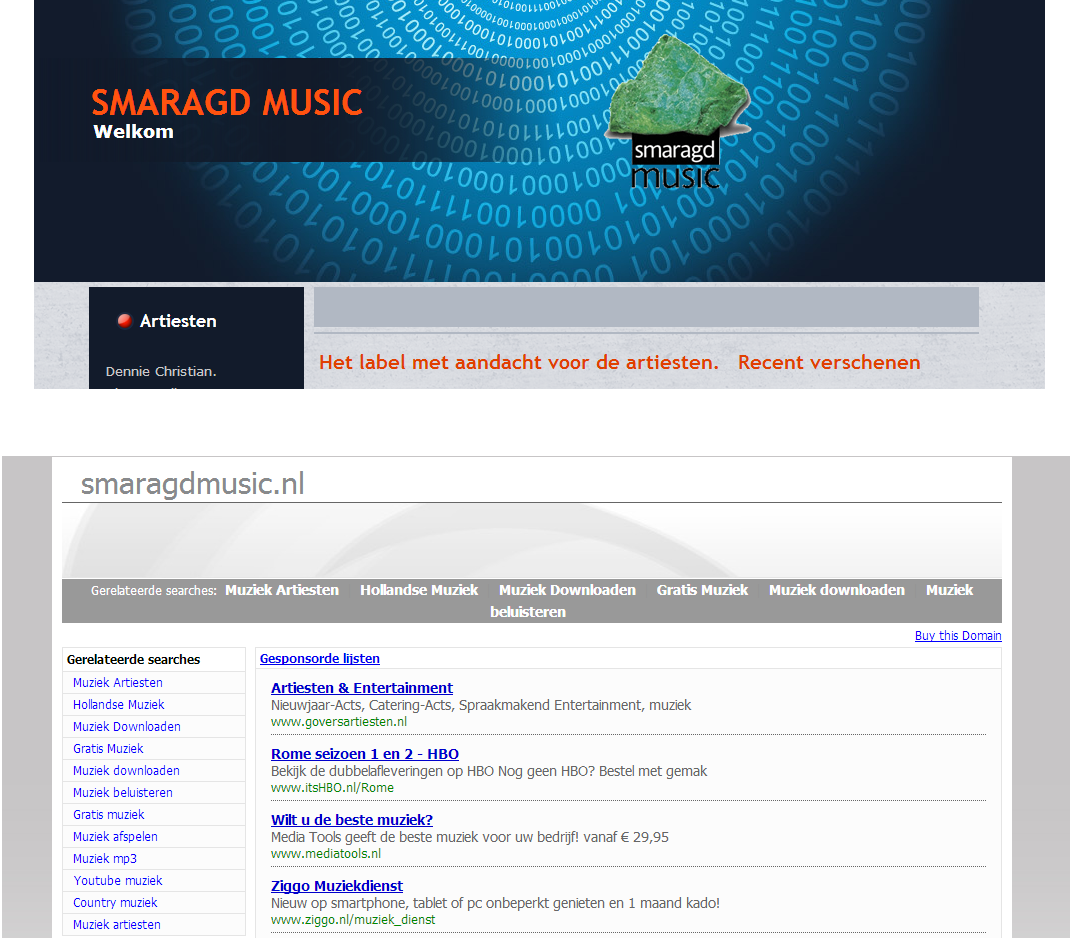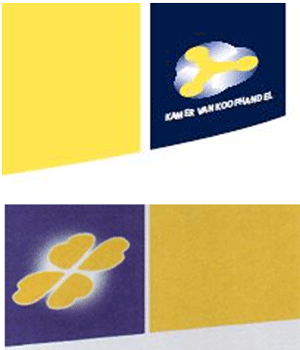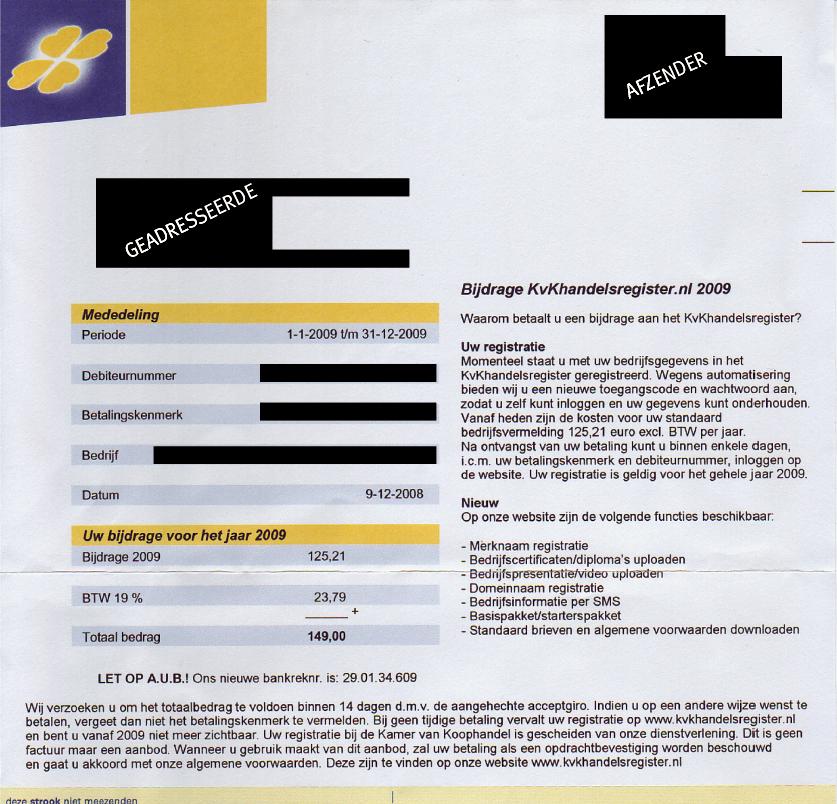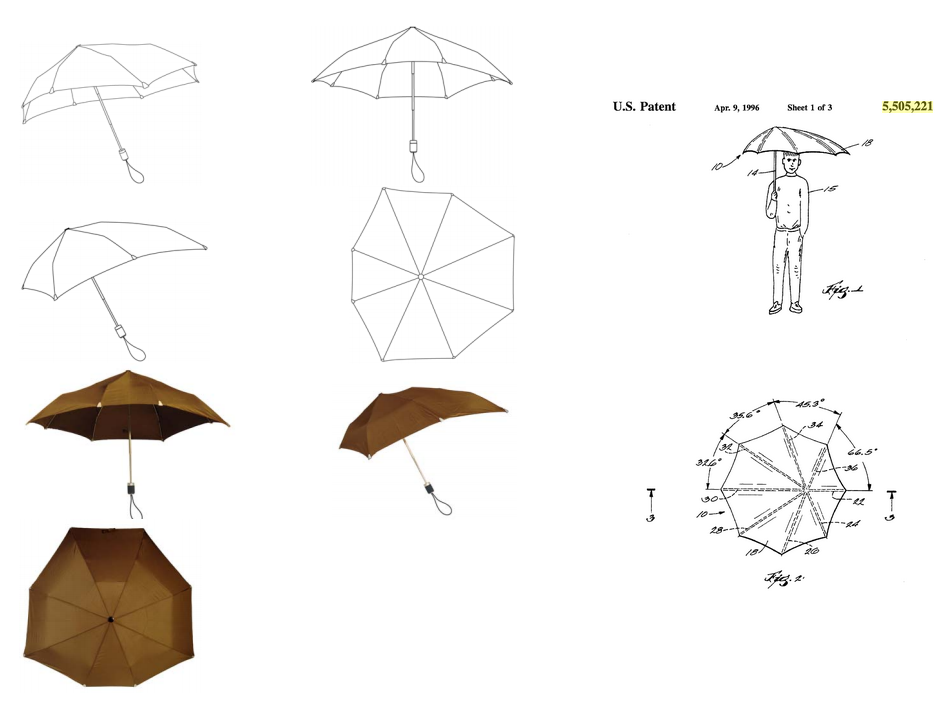OHIM Derde Kamer van Beroep 21 november 2012, R 960/2011-3 (Jürgen Schandelmeier tegen Baby Gab S.L.; "Kinderzitje")
 Met samenvatting van Laurens Kamp, Simmons & Simmons.
Met samenvatting van Laurens Kamp, Simmons & Simmons.
Gemeenschapsmodellenrecht. Uitleg van artikel 29 lid 5 van de Uitvoeringsverordening (taalvereisten voor bewijs in een nietigheidsprocedure). Toelaatbaarheid van nieuw bewijs in hoger beroep. Definitie van het begrip geïnformeerde gebruiker. Rol van logo's in vergelijking van het model met het vormgevingserfgoed.
De Derde Kamer van Beroep beslist dat het vereiste van artikel 29 lid 5 van de Uitvoeringsverordening, op grond waarvan het ingediende bewijsmateriaal moet worden vertaald in de taal van de procedure, niet van toepassing is op data, hoeveelheden, figuren, namen, weergaven van afbeeldingen op facturen, catalogi, brochures, etiketten en productverpakkingen. Het bewijs van Baby Gab, waarop "1-12 Marzo" en "año 2005" stond aangegeven, was derhalve voldoende om aan te tonen dat het oudere model ten minste vanaf 1 maart 2005 voor het publiek beschikbaar was gesteld. Dit is al eerder bevestigd in een aantal merkenrechtelijke beslissingen van de Kamer van Beroep van het OHIM.
Volgens de Derde Kamer van Beroep is de geïnformeerde gebruiker een persoon die doorgaans dergelijke producten koopt, ze naar hun doel gebruikt en deskundigheid heeft opgedaan door het doorzoeken van catalogi, websites en het bezoeken van winkels. De Derde Kamer van Beroep kiest hiermee voor de lijn van het Hof van Justitie EU in PepsiCo/Grupo Promer (IEF 10374). In dit arrest bepaalde het Hof van Justitie dat de geïnformeerde gebruiker zowel een kind van vijf jaar oud (de daadwerkelijke gebruiker) als een marketingdirecteur kon zijn (degene die de aankoopbeslissing neemt - zie rov. 54 van het arrest). Hoe dan ook wordt afstand genomen van de lijn van het Gerecht EU in Shenzhen, waarin het Gerecht bepaalde dat de geïnformeerde gebuiker enkel de persoon was die het voortbrengsel gebruikt in overeenstemming met de doelstelling daarvan (i.c. een bezoeker van een congres). Zoals al eerder gesignaleerd leidt deze overweging in veel gevallen tot praktische problemen; zo ook in deze zaak. De persoon die het voortbrengsel gebruikt in overeenstemming met de doelstelling ervan is immers een (klein) kind, dat waarschijnlijk niet beschikt over enige kennis van, en interesse in, andere modellen in de markt.
Ten slotte beslist de Derde Kamer van Beroep dat het feit dat de hoofdsteun van het oudere model beschikt over een logo, terwijl het jongere Gemeenschapsmodel geen logo bevat, slechts geldt als een onbelangrijk detail aangezien het logo "geen design functie heeft".
The earlier design and its divulgation
33 Firstly, the relevant dates have, in fact, been translated by the respondent in its observations. Further, in the area of Community trade marks, it is well established that dates, amounts, figures, names, representations of images in invoices, catalogues, brochures, labels and product packaging, are normally self-explanatory and do not require a translation (see, for example decisions of 10 April 2008, R 1120/2007-1, ‘Café Soleil (FIG. MARK)/SOLEY et al.’, para. 22; of 17 September 2008, R 1529/2007-1, ‘CERBERE/CERBERUS’, para. 25 and of 28 January 2009, R 663/2008-1, ‘CONQUISTADOR/Conquistador (FIG. MARK)’, para. 27). The Board sees no reason why this should not apply to evidence provided in a case concerning Community designs as well. The relevant information in the aforesaid catalogue is in any case self-explanatory and therefore does not need to be translated.
The informed user
45 The contested RCD is registered for child seats for motor cars. Therefore, the informed user to be taken into account is he whoever habitually purchases such an item, puts it to its intended use and has become informed on the subject by browsing through catalogues of, or including, child seats for motor cars, visiting the relevant stores, downloading information from the Internet, etc. (see, by analogy, decision of 18 September 2007, R 250/2007-3, ‘tavoli’). The informed user is familiar with the product at the level indicated in paragraphs 42-44 above.
Overall impression produced on the informed user
50 As to the fact that the contested RCD does not have a logo in the head protection area while the prior design does, this is an immaterial detail, as the logo or trade mark has no design function (see e.g. decision of 8 November 2006, R 216/2005- 3, ‘CAFETERA’, para. 26).
 Beslissing ingezonden door Janouk Kloosterboer, QuestIE Advocatuur.
Beslissing ingezonden door Janouk Kloosterboer, QuestIE Advocatuur. Uitspraak ingezonden door Michiel Ellens,
Uitspraak ingezonden door Michiel Ellens,  Een bijdrage van Bjorn Schipper,
Een bijdrage van Bjorn Schipper,  Een bijdrage van Corina Wolfert,
Een bijdrage van Corina Wolfert,  nds 2011 zijn de gemeentes Anna Paulowna, Niedorp, Wieringen en Wieringermeer gefuseerd tot een nieuwe gemeente Hollands Kroon (
nds 2011 zijn de gemeentes Anna Paulowna, Niedorp, Wieringen en Wieringermeer gefuseerd tot een nieuwe gemeente Hollands Kroon ( Talpa heeft echter ook lucht gekregen van deze wervingsactie en deelt dit enthousiasme niet. Talpa brengt namelijk al drieseizoenen het televisie programma The Voice of Holland en twee seizoenen The Voice Kids op de buis. Het symbool van het programma is een microfoon die in een vuist wordt vastgehouden waarbij twee vingers worden opgestoken in de vorm van een V. Onder deze vuist is een tekstballon waarin staat “
Talpa heeft echter ook lucht gekregen van deze wervingsactie en deelt dit enthousiasme niet. Talpa brengt namelijk al drieseizoenen het televisie programma The Voice of Holland en twee seizoenen The Voice Kids op de buis. Het symbool van het programma is een microfoon die in een vuist wordt vastgehouden waarbij twee vingers worden opgestoken in de vorm van een V. Onder deze vuist is een tekstballon waarin staat “ Een bijdrage van Emiel Jurjens,
Een bijdrage van Emiel Jurjens,  Incidentele vordering tot verwijzing. Eiser verzoekt verwijzing wegens connexiteit [red. met
Incidentele vordering tot verwijzing. Eiser verzoekt verwijzing wegens connexiteit [red. met  Civielrechtelijke of strafrechtelijke aanpak. Art. 31 jo. 31a Aw jo. 52 Sr.
Civielrechtelijke of strafrechtelijke aanpak. Art. 31 jo. 31a Aw jo. 52 Sr. De officier van justitie is ontvankelijk in de vervolging, nu hij in geval van deze verdachte niet heeft gehandeld in strijd met de
De officier van justitie is ontvankelijk in de vervolging, nu hij in geval van deze verdachte niet heeft gehandeld in strijd met de  Met korte samenvatting van Laurens Kamp,
Met korte samenvatting van Laurens Kamp,  Met samenvatting van Laurens Kamp,
Met samenvatting van Laurens Kamp,  Auteursrecht. Uitzending voetbalwedstrijd. Ondanks het niet tonen van de voetbalwedstrijd, moet de overeengekomen vergoeding betaald worden.
Auteursrecht. Uitzending voetbalwedstrijd. Ondanks het niet tonen van de voetbalwedstrijd, moet de overeengekomen vergoeding betaald worden.
























































































